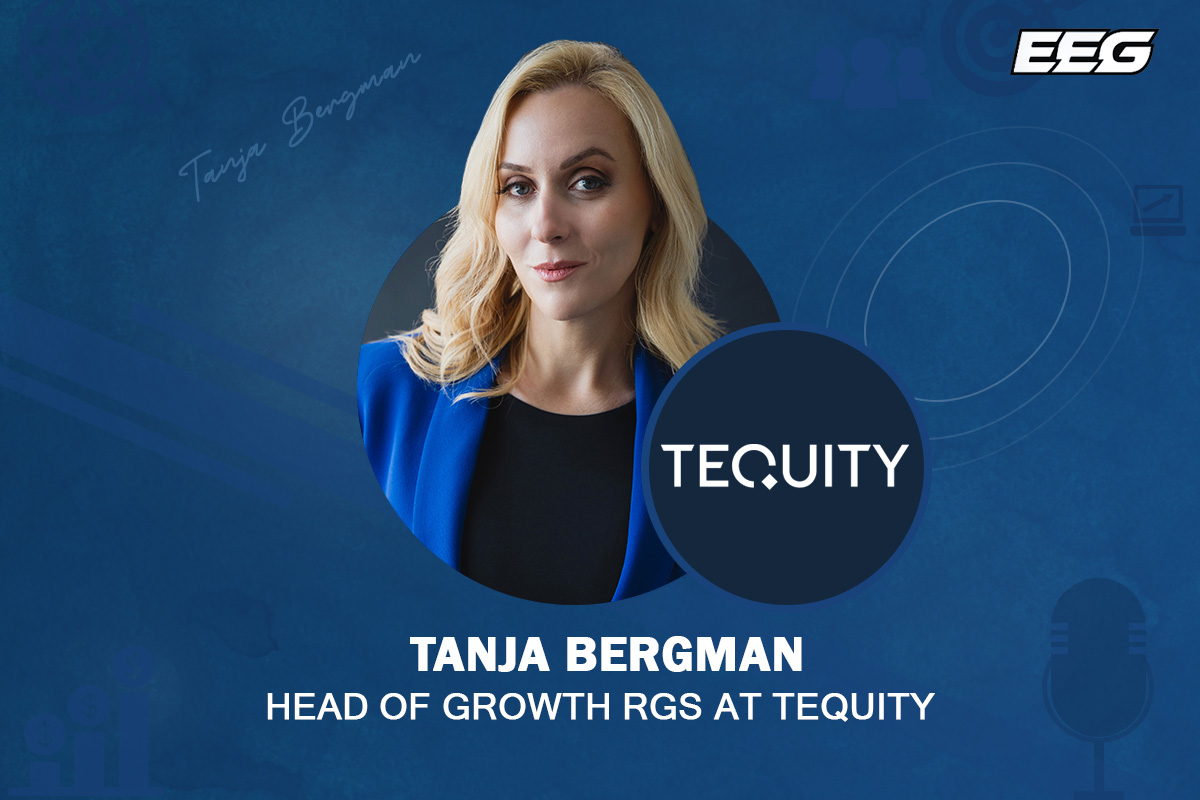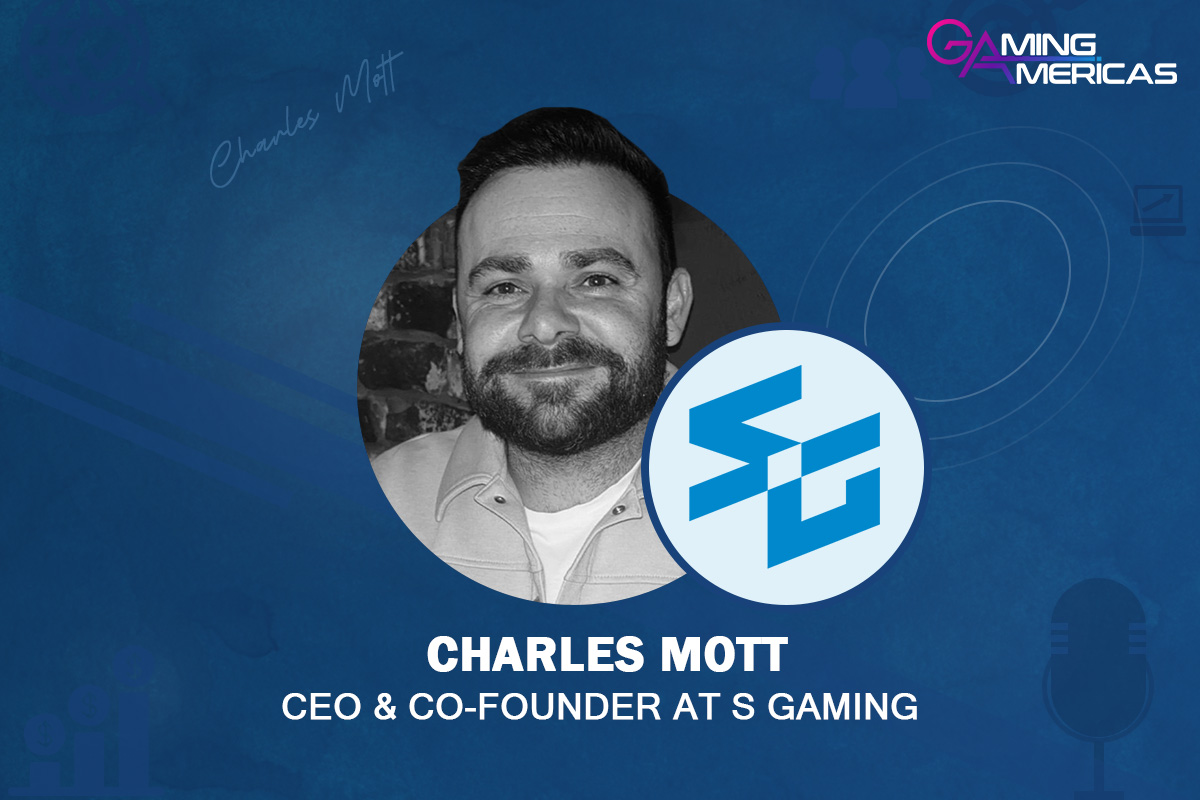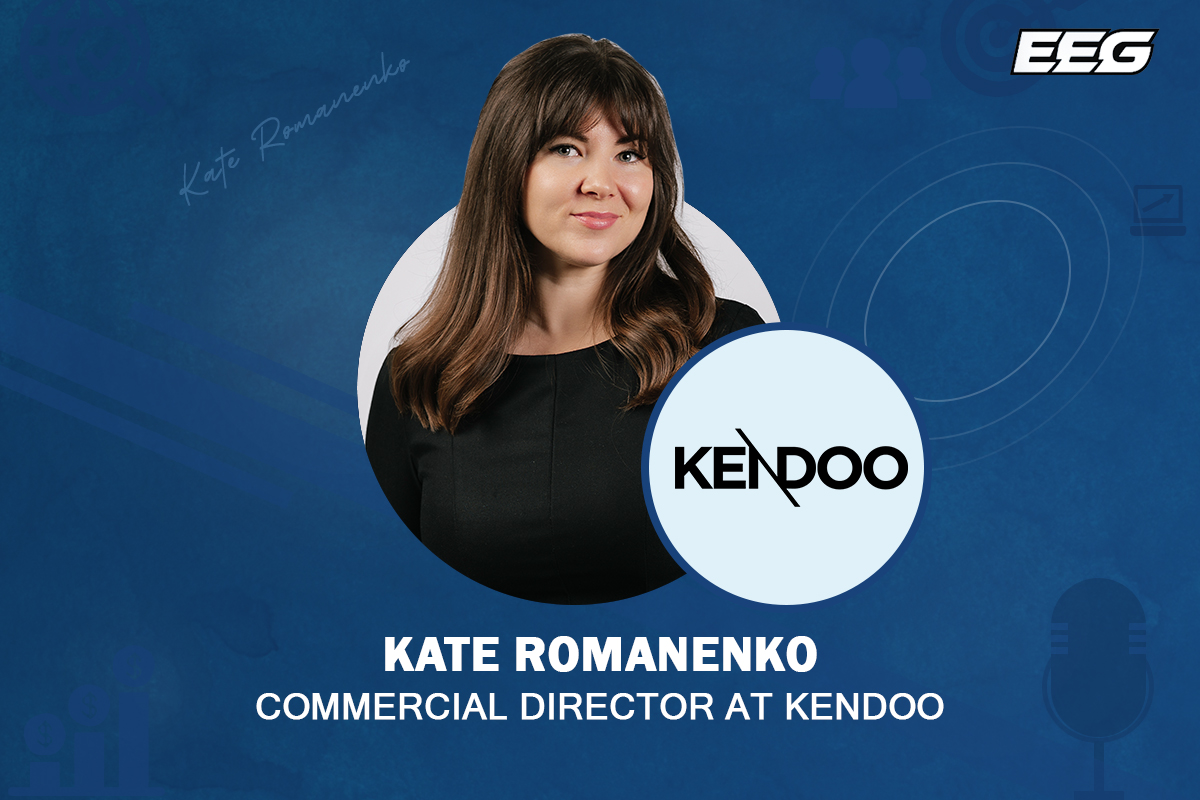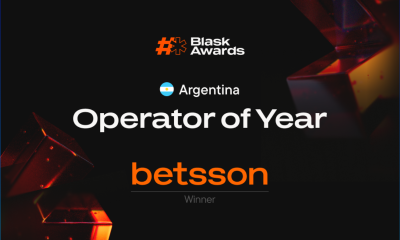Interviews
”When it comes to player behaviour, land-based customers have a different profile to those who only bet online”: Exclusive interview with GAMING1’s Sylvain Boniver

Casino and sports betting group GAMING1 is by far one of Belgium’s best-known suppliers, with over 42 gaming halls and casinos across Belgium, Switzerland and France – as well as 20 online operations globally.
Offering some excellent insight into how land-based vs. online has played out this year, we caught up with GAMING1’s Co-founder and COO, Sylvain Boniver to hear the latest on Europe’s market developments.
First off, for those who don’t know you – can you tell our readers about GAMING1 and what you do?
GAMING1 is a casino and sports betting group, which leads the land-based and online market in its native territory of Belgium and beyond. Leveraging almost three decades of industry experience, our unique business model remains as invaluable as ever.
Combining the network and brand power of a top land-based operator with advanced proprietary technology, we create cutting-edge digital channels for casinos and sportsbooks looking to step up their online operations. In total, we have more than 42 gaming halls and casino resorts in Belgium, Switzerland, and France, as well as managing a portfolio of online operations in regulated markets across the globe.
GAMING1 has a strong track record in Portugal, how has the market performed there this year?
GAMING1 was the first online operator to go live in Portugal with Estoril. The venture has been fruitful, and we’ve enjoyed cultivating such a productive commercial relationship with our valued partners at the company.
Although we’re proud to lead the way in Portugal when it comes to market share, we have no plans to rest on our laurels, and our sights are firmly set on continued growth in the territory. In the first quarter of 2020, we recorded an overall increase in GGR of 19% despite the hiatus on sporting fixtures. With the country’s most popular competitions now back up and running, the future looks promising.
How do you see the current state of the country’s iGaming market? Do you think it differs from other European markets? If so, how?
Portugal is a market which is becoming increasingly competitive. At its inception, commercial activity was restricted to local companies, but it long since attracted widespread international attention.
From a legal perspective, the tax review conducted earlier this year was welcomed by operators. The previous system stifled competition, driving the market underground to the benefit of illegal actors.
The current regime, however, remains burdensome. The black market still comprises more than half of the Portuguese gambling industry’s total commercial activity. The situation isn’t helped by needlessly restrictive regulations, but I’m optimistic that the situation will be resolved in due course.
How much of a land-based tradition do we have there? Is it harder to convert land-based players than in other markets?
It’s fair to say that Portugal’s land-based market is unique. It differs radically from that found in neighbouring Spain, for example. Casinos are the only place where you’ll find land-based bettors enjoying their favourite games – the slot machines seen in Spanish bars, arcades and even street corners do not exist in Portugal.
The country is currently home to just 10 casinos, three of which belong to our partner, Estoril Sol. That makes it a lot more challenging to create an omnichannel experience for players throughout Portugal, so we’ve chosen to focus on the regions where we are physically present.
When it comes to player behaviour, land-based customers have a different profile to those who only bet online. The cultures that exist around both verticals can also be very different, so the idea that it’s easy and effortless to bring land-based players online is fatally flawed.
Regarding player behaviour, land-based customers have a different profile than pure online customers and also different ‘cultures’; so, the idea that the conversion from land based to online is natural and easy, is not that simple.
How has COVID-19 affected the online partnerships through and betting and gaming services you offer to land-based operators?
The closure of land-based establishments has underlined the imperative for operators in that vertical to expand their online activities. Our partners have been successful at redirecting land-based customers to their digital operation, thus limiting the financial impact of the outbreak.
The pandemic has also accelerated many of the partnerships that are in our pipeline, but have not yet been finalised. We’re in discussion with a number of operators looking to step up their online offering which, in today’s market, is a matter of survival given the temporarily reduced presence of land-based.
Why are these better for operators in the current climate than a traditional supplier agreement?
The difference is that we win or lose together. Traditional suppliers often continue to charge for services regardless of the commercial success enjoyed by their operator clients. GAMING1, on the other hand, shares the same interests and objectives as its partners.
With more than 27-years of industry experience under our belt, operators know that GAMING1 is a partner that can always be relied upon. Focusing on a small number of projects means that we can invest more time and resources into a given partnership than traditional suppliers would. Unlike conventional providers, GAMING1 proactively helps operators bring land-based players online.
What does the short-term future hold for Europe’s casino industry, and how can you help your partners during this turbulent time?
Changes in player habits, coupled with Covid-induced restrictions, are likely to create challenges for operators without an online outlet. Those who have a synergised land-based and digital offering, on the other hand, will be much better equipped to weather the storm that is sweeping the global economy. For those in the former category, GAMING1 stands ready to help deliver an omnichannel experience to their players.
Which new European markets are on your radar? Are there any we should be keeping a close eye on?
We have our sites firmly set on French expansion, and are creating a land-based network in the country with our exciting new brand, ‘Circus’. We currently operate 6 casinos there, including a Club in Paris, and have undertaken a joint venture with valued partners JOA, who run 33 French-based casinos.
Of course, we are also eagerly awaiting online casino regulation and expect that the covid crisis will accelerate that process.
The Netherlands market also offers interesting prospects. Its authorities have just adopted a law to regulate the gambling industry, and we are preparing to enter the country with a top tier partner, so stay tuned for more info soon enough!
Powered by WPeMatico
Interviews
Scaling innovation through the launch of Tequity Publishing

Following the announcement of its new publishing vertical and the successful debut of Royal Drop, we sat down with Tanja Bergman, Head of Growth RGS at Tequity, to discuss how this new arm is set to dismantle technical barriers for ambitious studios and why scalability is the new frontier for the ‘Burst Games’ genre.
Tequity has just officially launched its Publishing vertical. What was the primary catalyst behind this move?
The industry is currently in a fascinating place. There is no shortage of creative talent among studios, but there is a massive technical bottleneck. We have seen so many ambitious studios with incredible concepts – especially those moving beyond traditional slots – who have been getting bogged down in terms of getting those concepts out into the marketplace.
The catalyst for Tequity Publishing was simple. We wanted to break down those technical barriers. By handling the infrastructure, distribution, and compliance frameworks, we allow studios to do what they do best, which is build outstanding games. It’s about speed-to-market without compromising on the quality or the vision of their content.
The launch coincides with the release of Royal Drop. How does this game, and the partnership with Mirror Image Gaming and The Fortune Engine, showcase what Tequity Publishing is all about?
Royal Drop is the perfect proof of concept. It’s a collaboration that highlights three important pillars of modern game delivery. You have Mirror Image Gaming bringing that fresh, video-game-influenced Burst Games energy, The Fortune Engine provide the math tools and templates, and Tequity Publishing offers the global scale and distribution pathway.

It shows that when you remove operational friction, you can create a game-first experience that appeals to a new generation of players who want something more interactive than a standard 5×3 reel.
Tequity Publishing offers two models: RGSaaS and RGS-to-RGS. Can you walk us through the strategic benefits of each?
Flexibility is key, because no two studios are at the same stage of their journey. The RGSaaS model is our full-service offering. It’s designed for studios that want to focus 100% on the creative side. We provide the entire infrastructure and publishing framework and it is essentially a business-in-a-box for game creators.
The RGS-to-RGS model is a more streamlined, tech-first approach for studios that already have their own RGS but lack the distribution muscle. It allows them to plug into our growing operator and aggregator network instantly. Both models are built on the same philosophy: helping studios reach parts of the market they otherwise couldn’t access on their own.
You mentioned reaching new generations of players. How does this vertical specifically empower studios to innovate in ways they couldn’t before?
When a studio is concerned about how they are going to integrate with a multitude of different operators or how to navigate complex jurisdictional requirements, they tend to play it safe. They stick to what they know.
By taking that weight off their shoulders, we give them the opportunity to be brave. Studios like Mirror Image Gaming are pushing the boundaries of modern iGaming, taking influences from the video game world. This is exactly what the new generation of players is looking for. We provide the scalability so that these niche, innovative ideas can achieve mass-market impact.
It’s been a busy period for Tequity, following the success of your Originals series and the iBankroll partnership. How does the Publishing vertical fit into the broader Tequity roadmap for 2026?
It’s all part of becoming the ultimate technology partner for the gaming industry. Whether it’s our streamer-friendly Originals or our Bankroll-as-a-Service offering, the goal is to provide scalable, customisable solutions. Tequity Publishing is the natural evolution of that mission. We aren’t only providing the tools anymore, but also the pathway to the player. Looking ahead, you can expect a series of further launches through our three-way collaborations. We’re proving that the barrier to entry for innovation has never been lower.
Finally, for studios looking to scale quickly, what is your main message to them?
Don’t let technical noise drown out your creative signal. If you have a game concept that breaks the mould, you shouldn’t have to spend years building the distribution architecture to get it seen. That’s what we’re here for. We want to help you launch at a speed and scale that matches your ambition, so that you can make a significant splash in the industry.
The post Scaling innovation through the launch of Tequity Publishing appeared first on Eastern European Gaming | Global iGaming & Tech Intelligence Hub.
BetMGM
Breaking America with BetMGM

We speak to Charles Mott, CEO & Co-Founder at S Gaming, about the provider’s move into the US market with BetMGM and why more casual gameplay hits the mark with players stateside
Congratulations on your deal with BetMGM in the USA. Why is this such a milestone market launch for S Gaming?
The deal with BetMGM marks our hotly-anticipated launch in the US market, and sees our games go live to players in core regulated states such as New Jersey, Pennsylvania, West Virginia and Michigan. We see huge potential for our content in the North American market, and to make our debut with such a high-calibre operator is a testament to this. The US is still just finding its feet as a regulated online casino market, and our games, with their focus on sustainability and high entertainment, are the perfect fit for audiences who are used to land-based slots and are increasingly moving online. They are simple, easy to understand and play, and ultimately deliver tons of fun over longer playing sessions – just like the slot machines found on the floors of casinos in Las Vegas and beyond.
Just how important was it to go live with a tier-one operator like BetMGM? And how will the deal allow you to quickly build momentum in the US?
It’s mission critical. Going live with BetMGM allows us to build immediate trust with players, tap into a large and loyal playerbase, and simultaneously enter multiple regulated iCasino states at the same time. Now that we are up and running with BetMGM, we are turning our attention to striking partnerships with other operators active in the market. It’s pretty much the same blueprint that we’ve followed in our home market of the UK where we are now live with all but a handful of brands – something we have been able to achieve in a little over two years. We know the US is a slightly different market, but we are confident in our approach to game development and, as we gather more data on how US players interact with our games, will use this feedback loop to guide our product roadmap going forwards so that each title is better than the last and more suited to the preferences of US players.
You mentioned that your games are aimed at more casual players. How does this align with the preferences of US consumers?
If you walk onto the gaming floor of any Las Vegas casino, you’ll see row after row of slot machines. Increasingly, these machines are designed to keep players entertained for longer through gripping gameplay and regular wins. A lot of online slot content delivers high risk/high reward gameplay, where players can quickly clear through their balance as they hunt down big wins – wins that don’t land all that often. In a market where operators care deeply about retention and lifetime value, games that keep players spinning for longer really matter. Our approach to producing sustainable, fun games for players in the UK and Europe has allowed us to not only stand out but to engage players at scale, and we are confident players in the US, especially those who enjoy land-based slotting, will also be drawn to them at scale.
Has launching in the US been a major undertaking for S Gaming, or did it prove to be plain sailing for the most part?
When planning our move into the US market we identified two routes. We have our own remote game server, so we could build on that, secure licences in each state we wanted to enter, and then deploy our content directly with operators. The other option would be to work with a third-party RGS provider that already has the licences and integrations we needed. While the first option might sound like the best, in reality, especially for a smaller studio, the cost of and resources required for securing individual state licences can be prohibitive. So instead, we joined forces with Gaming Realms as they have the cutting-edge RGS and licences (in both the US and Europe) we were looking for. This means we simply need to build a US version of each game on the Gaming Realms RGS and can then deploy content with the wide range of operator partners they are connected with in regulated iCasino states across the US.
Tell us more about the initial run of games you’ve launched with BetMGM.
We’ve launched the partnership with Barnyard Bash Chicken Chase which will be followed by Triple 7 Jackpot in February and Cat and Mouse Collect in March – with one new game a month to follow as we build out our US portfolio. If players were to try just one of our games, it would be Barnyard Bash Chicken Chase. It gets players clucking as they spin the reels, collect Eggs and add them to the growing Nest – the more eggs collected, the bigger the Nest Egg becomes. Not only that, Eggs can randomly activate the matching colour-coded Nest Egg and award entry to the Chicken Trail feature, drop Egg-stra Free Spins or lay an Instant Prize.
But once they’ve tried it, they’ll definitely want to take Triple 7 Jackpot for a spin. This classic slot is dripping in neon action – the Triple 7 feature is always on screen but is locked until a spin lands three Bonus 777 symbols. This unlocks the feature with on spin awarded, giving players a shot at the 500x Jackpot prize. Free Spins are also up for grabs with seven Free Games awarded when three Scatters land in the base game.
Finally, Cat and Mouse Collect is a playful, feature-rich slot built around a simple but engaging Collect mechanic. Players pin the reels, collect up the cheeses and feed the hungry mice until they’re fit to burst. Green plates will serve up an instant prize, Blue will start the wild and wacky Cheese Chase and Red dishes out some feisty Free Spins. With regular feature triggers and plenty of on-reel interaction, it’s designed to keep players engaged from spin to spin without relying on extreme volatility.
What does success in the US look like for S Gaming over the next 12-18 months?
Success for us isn’t about one big hit, it’s about becoming a trusted, widely-distributed supplier in regulated iCasino states. Over the next year we want to significantly expand beyond BetMGM, roll out a steady pipeline of US-optimised titles and build the kind of player data and
operator relationships that let us grow sustainably. If players in New Jersey, Pennsylvania and Michigan are regularly choosing S Gaming titles as part of their core rotation, then we’ll know we’re really breaking into the market.
The post Breaking America with BetMGM appeared first on Americas iGaming & Sports Betting News.
3 Fortune Trees.
Kendoo interview: Can stability be the new innovation?

What innovation consists of within the slots industry is often debated. While there are often calls for more groundbreaking features to be introduced, the reality is that the progression of trusted and popular concepts is what drives the industry forward with new releases.
We caught up with the Kendoo’s Commercial Director, Kate Romanenko, to understand more on how long-term retention is often underpinned by controlled evolution of proven concepts, as shown in the company’s success over the past year.
In an industry driven by novelty, why do you think long-term consistency is becoming just as valuable as innovation?
In the competitive iGaming market, everyone is obsessed with “what’s next,” long-term consistency has become a signal of trust. Operators are increasingly cautious: they want games that perform predictably over time, not just those who grow only on launch. Controlled evolution, like we showed with 3 Pots and 4 Pots games, such as 3 Fortune Trees, 3 Gates of Pyramid, 4 Egypt Scarabs etc., proves that you can refresh mechanics and visuals without breaking what already works. Innovation still matters, but when it’s backed by performance data and retention, it becomes scalable, sustainable value rather than short-lived hype.
How does Kendoo ensure technical and gameplay stability across its growing portfolio, especially as it scales into new markets?
At Kendoo, we build on a select set of well-tested core mechanics, evolving them thoughtfully rather than introducing unproven systems. Each game reflects our research, experience, and deep understanding of player needs. This approach lets us expand into new markets without compromising reliability, delivering operators consistent performance and players a smooth, familiar experience they can trust.
What role does reliability play in building strong partnerships with aggregators and platforms?
Reliability is the foundation of trust with aggregators and platforms. When integrations are stable, launches are predictable, and games perform consistently, partners can scale with confidence. For Kendoo, reliability reduces operational friction on their side, fewer incidents, faster rollouts, and clearer performance expectations. Over time, this turns a supplier relationship into a long-term partnership, where growth is planned together rather than driven by constant risk around new releases.
Do you think players are beginning to value dependable, well-balanced games over constant experimentation?
Players enjoy novelty, but they return to games that feel fair, familiar, and well-balanced. Constant experimentation can create friction, while dependable mechanics build confidence and habit. That’s why evolved formats with proven performance tend to retain better: players know what to expect, and that reliability turns curiosity into long-term engagement. For example, taking mechanics like Pots, which originated in land-based casinos, and successfully adapting them for online play.
Can you point to a Kendoo title that’s become a steady performer over time and what that tells you about what players really value?
A clear example is 3 Fortune Trees. Since launch, it has consistently driven strong retention and engagement across markets, with an average of 500 bets per player, which is excellent. The game demonstrates that players value Pots mechanics and reliable, well-balanced gameplay over flashy, one-off features. Its engaging mechanics, popular theme, and premium art and animation all come together to create a game that players love to play.
The post Kendoo interview: Can stability be the new innovation? appeared first on Eastern European Gaming | Global iGaming & Tech Intelligence Hub.
-

 BetPlay7 days ago
BetPlay7 days agoBlask Awards 2025: Betano, Caliente, BetPlay, Betsson and others define Latin America’s iGaming landscape
-

 bingo halls6 days ago
bingo halls6 days agoBingo Halls and Casinos in Colombia Increased Their Contributions to Healthcare System by 9.3% in 2025
-

 Brightstar Lottery PLC6 days ago
Brightstar Lottery PLC6 days agoBrightstar Lottery Delivers Industry-Leading Sales Force Automation Solution to Ontario Lottery and Gaming Corporation
-

 Compliance Updates5 days ago
Compliance Updates5 days agoFinland Govt Looks at Whether Scratchcards can be Gifted Again
-

 Claire Osborne Managing Director of Interactive at Inspired Entertainment4 days ago
Claire Osborne Managing Director of Interactive at Inspired Entertainment4 days agoTwo new slots from Inspired — Coin Inferno Step ‘N’ Stack™ and Mummy It Up™
-

 Latest News4 days ago
Latest News4 days agoACR POKER GIVES PLAYERS A SHOT TO QUALIFY ONLINE FOR $700,000 GTD ENJOY POKER SERIES MAIN EVENT THIS FEBRUARY IN URUGUAY
-

 Amusnet3 days ago
Amusnet3 days agoWeek 5/2026 slot games releases
-

 Canada4 days ago
Canada4 days agoHigh Roller Technologies Signs Letter of Intent with Kindbridge Behavioral Health to Support Responsible Gambling in Ontario



















